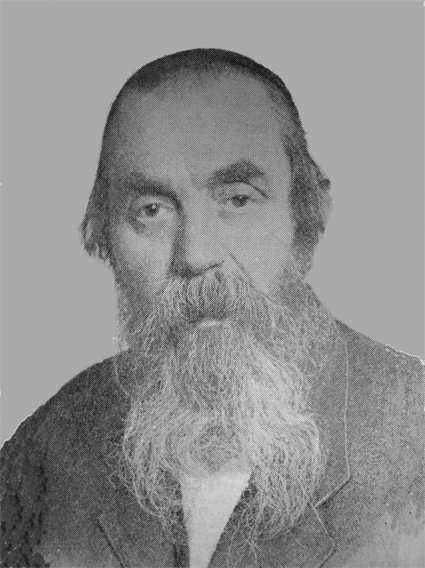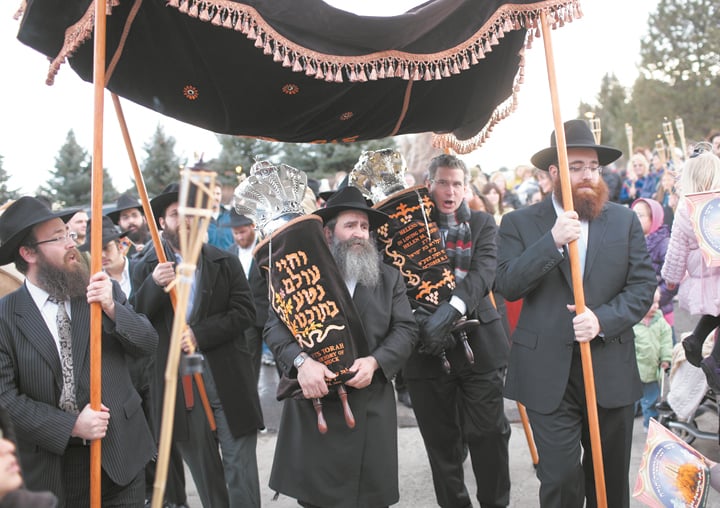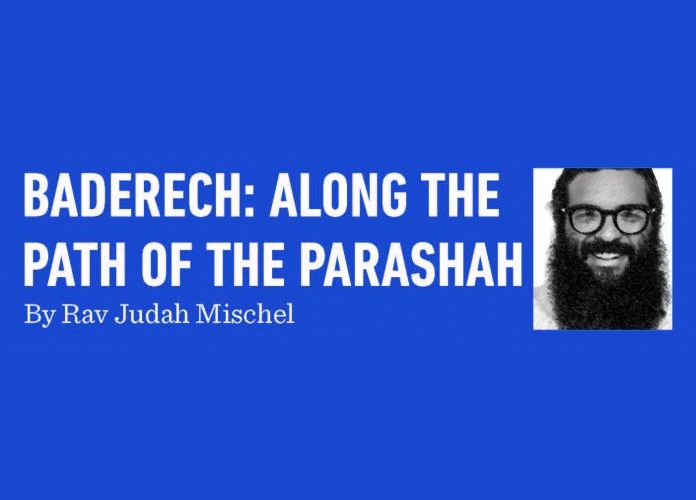Musings Of A Shliach From Montana

Rabbi Chaim’s mashpiah or spiritual mentor, his great-grandfather Rav Chaim Shaul Bruk, z’l
Just last week Chavie hosted Tonia Chazanow of the “Human and Holy” podcast on her podcast, “Totally Unexpected.” I always listen to Chavie’s conversations with her guests as they are super interesting. They remind me of how blessed I am to call her my wife, and it gives me nachas listening to her share the wisdom of Torah and Chassidus with a large audience across the globe.
She shines such radiant light.
One of the things they discussed was bitul, the ancient Chassidic idea that educates the Jew to place their ego aside, not making everything about themselves, and to totally “submerge in the oneness of G-d,” in the service of our Creator. Tonia and Chavie are both avid Tanya teachers, so the conversation was enlightening and inspiring. For decades bitul has been explained to be “self-nullification” or “subservience” to G-d, but both of these terms sound like we have to remove ourselves to make room for Hashem. I have a dear chavrusa named Daniel from Pittsburgh, who I study with on Wednesdays, who translates bitul as “self-transcendence,” which is much better than the other two, but still seems to indicate that we are to “transcend ourselves” to find G-d.
Tonia translates bitul as “G-d centric,” which I think is phenomenal. It’s not about destroying ourselves or like the mussar teachers insist, on being “gornisht,” a nobody. It’s about being a somebody whose entire being, purpose, and existence is about living life in service of Hashem and utilizing every aspect of our uniqueness in that service.
This idea of bitul is really relevant and important around Shavuos, because the only way to truly receive the Torah is by putting all our self-interests and agendas aside and digging inward to our core, our neshamah. If we are to receive the Torah together with our Jewish brothers and sisters, all of Klal Yisrael, every Jew must devote their entire being to something bigger than our personal “stuff.”
The Gemara says in Megillah that Yerushalayim was not divided up and given to specific tribes. Though it’s clear that different parts of Yerushalayim belonged to the tribes of Yehuda and Binyamin, that was only technical in the sense that others couldn’t take control of said land, but realistically, Yerushalayim, the Beis HaMikdash, belonged to all Jews and they don’t need permission or blessings from Yehuda or Binyamin to enter and utilize the holy space as their own. It was a place where we were all immersed in the Divine experience without room for tribalism or division. Yerushalayim had the ability to take us all to a place of oneness.
Furthermore, the Gemara discusses lodging in Yerushalayim and the Rambam rules in accordance with the opinion that when Jews head to Jerusalem for the holidays, they don’t need to rent rooms from the Jews in Jerusalem since they belonged to everyone. Therefore, lodging is free for any Jew in any Jewish home where there is available space. The Gemara even has an opinion that the beds the visitors slept on must be provided by the locals free of charge, especially for those visiting from outside the Holy City.
The Gemara then adds something strange. Rabbi Elazar bar Tzadok says: Even beds may not be hired out. Therefore, in the case of the hides that the guests offered the innkeeper in lieu of payment, the innkeepers are considered to be taking them by force since they did not have the right to demand payment.
If they aren’t supposed to charge rent, why then are the visitors okay with the idea that the innkeepers could take the hides of the slaughtered animals that the guests had bought as korbanos for the shelamim peace offering? Sure, the innkeepers may have taken them by “force,” but was it an acceptable force? Rav Shaul Alter, shlita, explains that by leaving the hides in Jerusalem, the visitor is indicating that the externalities aren’t important to him, just the internal, essential, service of Hashem. The visitor who is in Jerusalem to elevate himself spiritually and connect with Hashem in a more “visible” manner is seeking to demonstrate that their materialistic and physical needs are not high on their list, that they are more intent on internalizing holiness, so if the innkeeper demands the animal’s most outer aspect for themselves, we can leave it with him.
In a similar vein, Torah cannot be acquired while our attention rests on mundane matters. It just doesn’t work; we are either self-centered or G-d-centered. We cannot be both.
The Rebbe, zt’l, in a 1982 farbrengen talks about Shavuos and seeks to reconcile what is seemingly some holiday confusion: When the Jews arrived at Mount Sinai to receive the Torah, we are told in Mechilta that they were like “one person with one heart.” Though when they came into the Sinai desert it says “Vayavou” and “Vayachanu,” both in the plural. When they settled at the mountain it says “Vayichan”—they found unity, oneness, and are seen as a singular entity.
Yet, we know that even at Pesach when leaving Egypt, they were referred to as “Tzivos Hashem,” one joint army of G-d. So, what was wrong with the unity of Passover that necessitated a new form of unity at Sinai?
The Rebbe explained that when the Jews left Egypt, there weren’t divided yet into groups of Kohanim,Leviim, and Yisraelim: they were indeed part of a collective and G-d redeemed them all equally. Unity, when everyone is the same, is a piece of cake. Yet, when they arrived at Sinai, they had already experienced division, and at Sinai they were commanded to stay in their specific lane, and yet they were still united in their yearning and excitement to receive the Torah. A unity that can come about despite our differences is the best type and is genuine. When we submit ourselves to Hashem and his Torah, we have the ability to attain such unity. And how is that attained? Through bitul.
The Baal Shem Tov once arrived at a shul in a small village. He stood at the door and said that he couldn’t enter because the shul was “filled with Torah and tefillah,” so there was no room for him. Everyone hearing this was astounded since it seemed like the greatest compliment for the shul and its congregants. So, the Baal Shem Tov explained: “When we study Torah and pray wholeheartedly for the sake of Hashem, “Lishma,” then the words of prayer and Torah head heavenward, then there is room in the shul. But in this shul, nothing is being done for the sake of Heaven, so all the words remain here below, filling the shul so that it leaves no room for anyone else to enter.
The Zohar explains that words of Torah and prayer need wings to head upward, and the wings are love, and fear of Hashem. We must seek to connect with Hashem in the process of learning His Torah and Praying to Him. Otherwise, it’s kind of a futile endeavor. When Shavuos comes around and we read the Aseres Hadibros in shul, make sure to bring everyone to hear it, including babies, something the Rebbe, zt’l, encouraged for every Jewish soul, no matter what their age. We must realign our priorities, and seek to immerse ourselves in holiness with the right intentions.
In the “Sefer Zikaron L’Reb Chaim Shaul Bruk,” the memoirs of my paternal great-grandfather, Reb Shaul Bruk, who I’m named after, he shared the following:
Rav Yonasan Eybeschutz, the Ya’arot Devash, was once sitting at a seudas mitzvah and asked each attendee to share a dvar Torah or even a passuk from Chumash or a Mishnah. Rav Yonasan began with a deep pilpul (dissertation) full of deep and genius Torah ideas. After him, the head of the beis din, the rabbis, the shochatim, etc. all shared great Torah insights. When they reached the end of the table, the last one to share a Torah thought was a simple Jew who didn’t know how to learn. So, he stood up and said the verse “Shema Yisroel,” proclaiming the Jewish belief in G-d’s oneness. Rav Yonasan responded to the fellow’s speech by saying that all the other speeches could be debated, as there are other great rabbanim who may see the Torah teaching differently, but this fellow’s recitation of Shema Yisrael cannot be questioned or debated, as we all agree on this fundamental idea. It was a beautiful comment from a great rabbi about the powerful faith of a simple Jew.
Another shochet sitting next to Rav Yonasan whispered in jest, “We can debate this too,” referring to Shema Yisrael. Upon hearing this, Rav Yonasan relieved him from his duty as a shochet. When it comes to G-d’s oneness, the Shema Yisrael is no joking matter. It’s the essence of everything.
When Shavuos arrives, we are to go deep or go home. Let us resolve to incorporate bitul because that will bring us to perfect unity and allow us to receive the Torah with joy and inwardness and love. n
Rabbi Chaim Bruk is co-CEO of Chabad Lubavitch of Montana and spiritual leader of The Shul of Bozeman. For comments or to partner in our holy work, e-mail [email protected] or visit JewishMontana.com/Donate.














